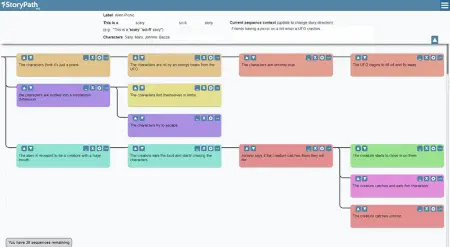How to Beat Writer's Block and Get Back to Your Manuscript
There is some debate as to whether or not writer's block actually exists, but we can't deny that, sometimes, when we actually get our butts in front of a keyboard the words just don't come out. Call it what you will, it's a real problem that strikes us on occasion, but we have the solution!
Try to understand the cause of your writer's block
Much of the time when we find ourselves stuck on what to write it's because we've actually written ourselves into a corner and can't think of where to go! Maybe you've been making things too easy for your protagonist, so there isn't any challenge for them to overcome. Maybe you haven't fully defined their needs and wants. A fun exercise to try is to ask yourself, "What is the worst thing that could happen to my character right now?" Maybe an armed robber busts in and steals their laptop, maybe it's running into their Ex on the street, maybe it's getting a promotion that they aren't qualified for. Figure that thing out, then write that! Putting your characters into tough situations you haven't prepared them for then seeing how they get out of it is a fun game!
Another source of writer's block can be stress and anxiety from work or home life. Maybe your mind keeps wandering elsewhere. If your ability to concentrate is what's holding you back, you might want to switch your focus to that for the time being, maybe by making a phone call or going for a run. If your kitchen caught on fire, you'd understandably find it hard to concentrate on your characters without going to put it out first!
Don't stare at a blank page
Some common advice is to not sit there staring at a blank page, stressing out while waiting for inspiration to strike. Write something. Start typing out the things you did today or need to do tomorrow, type up a grocery list, type up anything to get words on the page. It'll remove the pressure of the blank page, and might even shake loose some words.
Our sister-site, Story Path, also helps by generating possible 'next steps' for your stories based on what's already happened. So if you're in the midst of writer's block, Story Path can give you several plots to explore.

Jump around the scene/story
You don't have to write your scenes or chapters chronologically from the beginning. Is there going to be a fight in the middle of this scene? Start writing that from the first punch thrown, then back-track later to write about how the fight started. Is there a big argument or conversation? Stub out the dialogue then add in the characters' thoughts and feelings later.
Think about the causation of events in your plot. Maybe you're at a point in your story where your protagonist has gotten onto a ship to go and find a magical sword so he can beat the evil dragon, but you're not quite sure what the journey to get the sword looks like. That's fine, just jump over all those chapters and go straight to fighting the dragon. You might find that you add in some detail about the sword or something else the character learned or acquired on the journey that helps them in the fight with the dragon. You'll then be able to go back to the chapters you skipped over with some solid details of what has to happen.
Backtrack in your plot
If you just can't get yourself out of a roadblock, rewind for a few scenes and think about how those scenes could have ended differently and given your character a different trajectory. Maybe instead of finding the family heirloom in the back of the closet, our protagonist's parents tell her that her evil Uncle Morty stole it. Maybe that will get you inspired.
Don't write the perfect sentence
Another common tip is to not worry about editing as you're typing. Maybe you spell something wrong or the punctuation is off. Who cares? Maybe you ramble on for a few paragraphs describing a house you'll never see again. Again, who cares? Get the words out now, finish the story, then go back and see where you can trim and refine, see what is and isn't relevant, etc. Personally, I'll sometimes write sentences that I know are a little rough and will need to be reworked later, but I don't let it stop me from finishing the scene. If the information is correct but just isn't that beautiful or eloquent, stopping to fix it just gives yourself a roadblock you have to try and clear, and breaks your flow. You'll lose your train of thought, and you'll forget that awesome sentence you thought up only a minute ago but hadn't gotten to write down yet because you were too busy revising!
Be proactive for your next session
Finish each writing session by leaving notes on what to write next, either as bullet points or even a few sentences. Then, when you next get back to it, you're already on your way! Flesh out the bullet points and finish off the sentences you left for yourself.
When in doubt, ask for help
Talk to your friends (writers, non-writers, people online), tell them about your plot and how it developed and where you're now stuck. Trust me: everyone has an opinion on where your story should go! Some ideas might be terrible, some will be brilliant, but try running with something just as a way to push forward. I guarantee that once you reach the end of the novel, you'll look back and see exactly what has to happen in that section.
